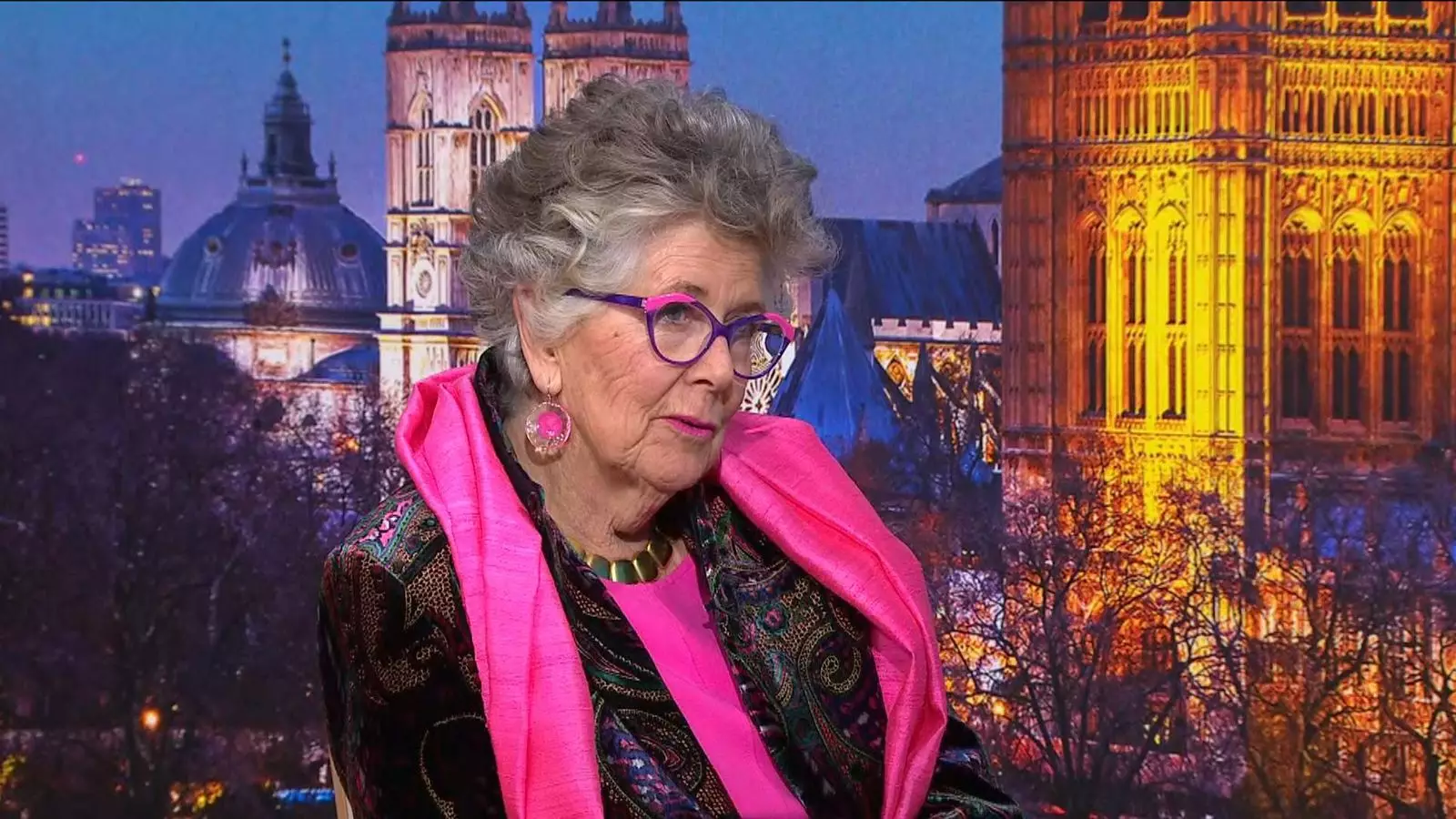Dame Prue Leith, a prominent figure in the television landscape known for her role in “The Great British Bake Off,” recently ignited a crucial conversation surrounding assisted dying in the UK. This topic, deeply personal and often divisive, is gaining traction as the Terminally Ill Adults (End of Life) Bill is scheduled for debate in the House of Commons. Leith’s advocacy for this bill is a direct response to her own encounters with the painful realities of terminal illnesses, particularly through the harrowing experience of watching her brother suffer in his final days. This narrative reveals how personal experiences profoundly impact one’s stance on such a contentious issue.
Leith observed her brother David, who was afflicted with bone cancer, agonizing during his last moments, an experience she characterized as traumatic. The visceral description of his suffering—crying, whimpering, and ultimately pleading for an end to his pain—paints a stark illustration of the emotional and physical toll that a terminal illness can take, not only on the patient but also on their loved ones. This first-hand account underscores why humanitarian arguments for assisted dying often hinge on empathy and the morality of alleviating suffering.
Despite sharing a familial bond, opinions on assisted dying significantly differ between Dame Prue and her son, Danny Kruger, who serves as the shadow work and pensions minister. Kruger’s commitment to ensuring that the NHS provides top-quality palliative care suggests that he envisions a society where the need for assisted dying is rendered obsolete. He posits that if palliative care were up to par, individuals would not seek an option for assisted dying, fundamentally disagreeing with his mother’s perspective. This familial disagreement highlights a broader societal debate around individual autonomy versus state intervention in end-of-life choices.
Leith expressed her belief that Kruger’s opinion would change dramatically had he experienced the suffering of his uncle or father as she did. The commentary regarding their dynamic reveals the complexities of discussing sensitive topics within families. Leith acknowledges their discussions around this issue are loving, despite diverging viewpoints. This duality brings to light the importance of open dialogue in navigating profound ethical dilemmas.
As the legislative hearings approach, Leith is actively calling upon MPs to support the proposed law, arguing that the current legal framework fails to address the needs of terminally ill patients adequately. The Terminally Ill Adults (End of Life) Bill seeks to allow individuals over the age of 18 to seek medical assistance to end their lives under specific conditions. Advocates, including Labour MP Kim Leadbeater, emphasize that the proposed safeguards within the bill are among the most stringent in the world, aiming to preempt potential misuse.
Yet, opposition remains firm, with critics warning of a “slippery slope” that could lead to a culture of death on demand. They argue that the dangers inherent in legalizing assisted dying could compromise the sanctity of life. The complexity of this debate raises significant ethical questions about the balance between preserving life and easing suffering.
As society grapples with the moral and ethical implications of assisted dying, it is essential to consider the multifaceted perspectives rooted in lived experiences. Leith’s passionate advocacy serves as a reminder of the humanity behind legislative discussions, as does her brother’s tragic story. Navigating the intricacies of this debate requires empathy, understanding, and a willingness to reevaluate existing frameworks in light of personal narratives that highlight the urgent need for change.
Ultimately, this conversation symbolizes a broader societal struggle to balance compassion with the ethical frameworks governing life and death decisions. It remains crucial for lawmakers, healthcare professionals, and society at large to engage in meaningful dialogue, ensuring that policies not only reflect the complexities of end-of-life care but also prioritize the dignity and autonomy of every individual facing terminal illness.


Leave a Reply